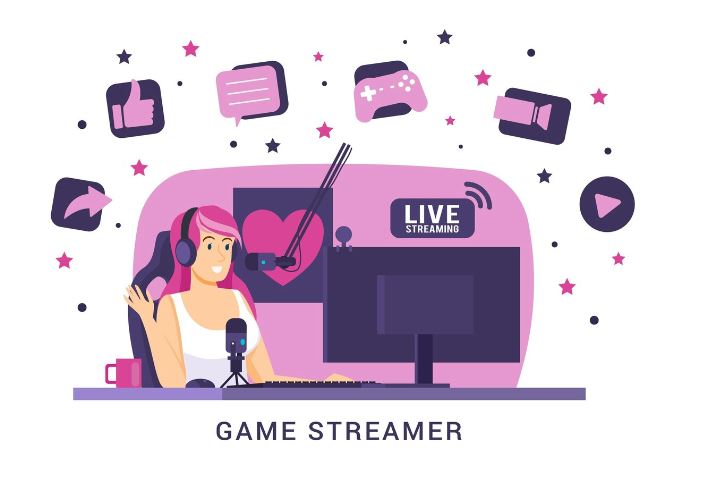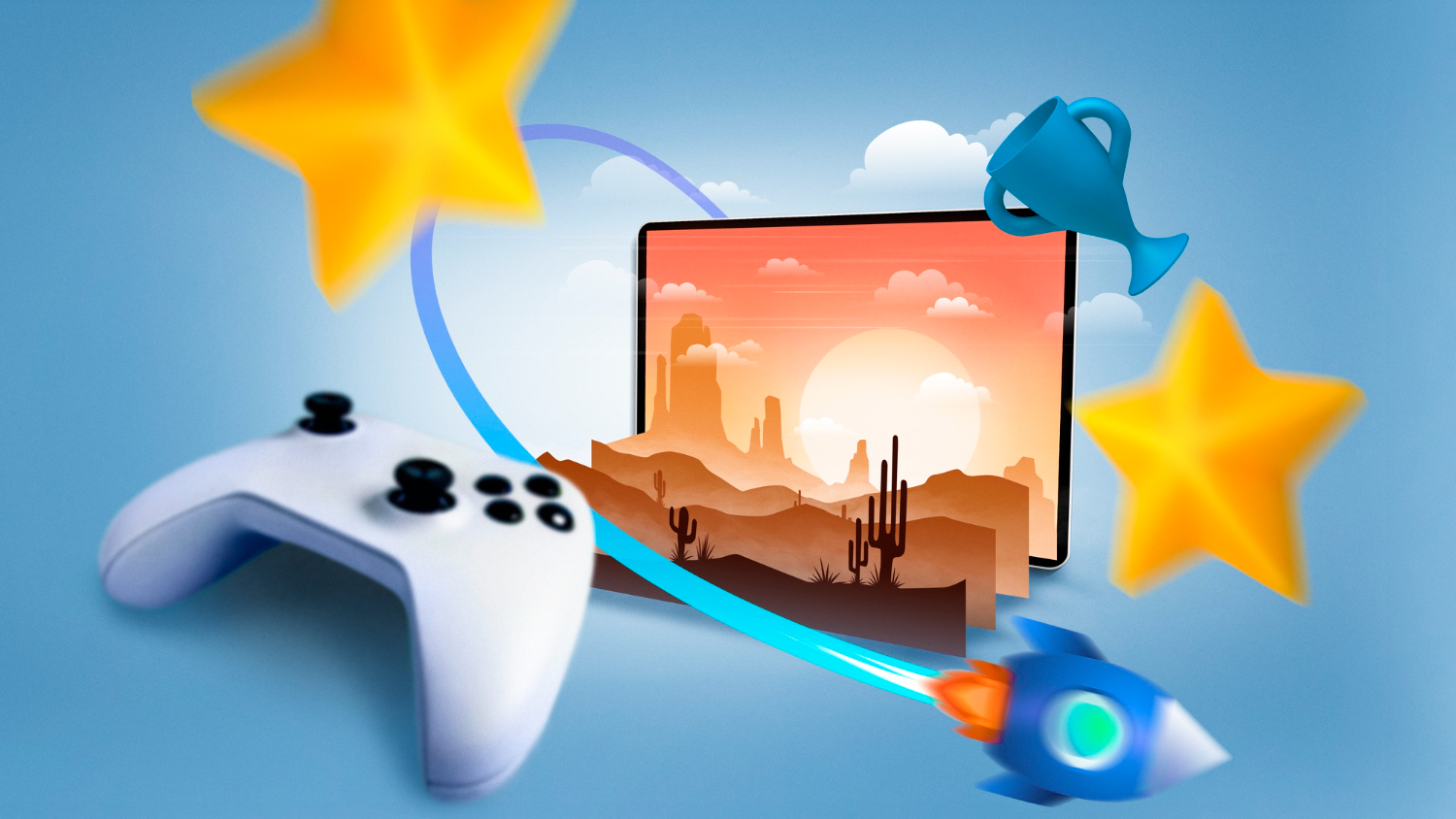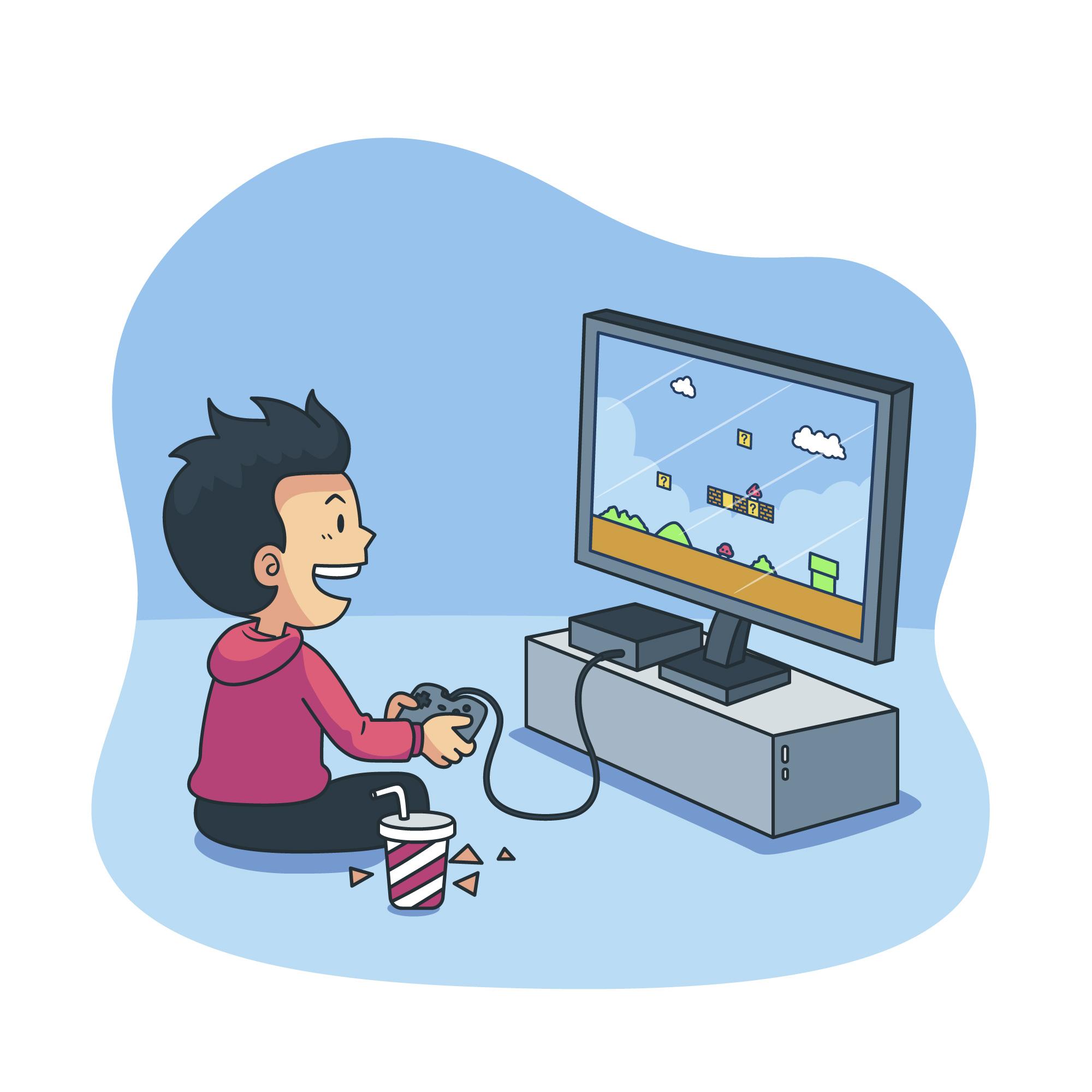On-line gaming has turn out to be a worldwide phenomenon, fascinating hundreds of thousands of gamers world wide. From informal cellular video games to aggressive esports, the web gaming panorama presents one thing for everybody. Whether or not you’re a seasoned gamer or simply beginning, understanding the world of on-line gaming can improve your expertise and open up new alternatives for enjoyable, competitors, and even profession development. On this complete information, we’ll discover the ins and outs of on-line gaming, together with its historical past, in style genres, platforms, and ideas for staying protected and aggressive.
The Evolution of On-line Gaming
The journey of on-line gaming started within the Nineteen Seventies with easy text-based video games that allowed gamers to work together by way of early laptop networks. As know-how superior, so did the complexity and accessibility of on-line video games, resulting in the creation of the large, interconnected gaming world we all know immediately.
1. The Early Days
On-line gaming began with Multi-Person Dungeons (MUDs), which have been text-based role-playing video games the place gamers may work together with one another in a digital world. These video games laid the inspiration for the social and collaborative points of contemporary on-line gaming.
2. The Rise of Multiplayer Video games
With the appearance of extra highly effective residence computer systems and the web, multiplayer video games turned extra frequent. Titles like “Doom” and “Quake” popularized the thought of aggressive on-line gaming, resulting in the event of first-person shooters (FPS) and real-time technique (RTS) video games.
3. The MMORPG Increase
The late Nineties and early 2000s noticed the rise of Massively Multiplayer On-line Position-Taking part in Video games (MMORPGs), with video games like “EverQuest” and “World of Warcraft” bringing collectively hundreds of thousands of gamers in huge, persistent digital worlds. These video games emphasised neighborhood, collaboration, and a shared on-line expertise.
4. The Period of Esports
As on-line gaming grew in reputation, so did aggressive gaming, giving rise to esports. Video games like “StarCraft,” “Counter-Strike,” and “League of Legends” turned staples within the esports world, with skilled gamers, groups, and tournaments attracting large audiences and vital prize swimming pools.
Widespread Genres in On-line Gaming
On-line gaming spans a variety of genres, every providing distinctive experiences and challenges. Listed here are a few of the hottest genres in on-line gaming:
1. First-Individual Shooters (FPS)
FPS video games put gamers within the sneakers of a personality, usually viewing the sport world by way of their eyes. These video games concentrate on fight, technique, and fast reflexes. Widespread FPS titles embody “Name of Obligation,” “Counter-Strike: World Offensive,” and “Overwatch.”
2. Battle Royale
Battle royale video games are a subgenre of shooters the place gamers compete in opposition to one another in a big, open-world surroundings, with the final participant or crew standing declared the winner. Video games like “Fortnite,” “PlayerUnknown’s Battlegrounds (PUBG),” and “Apex Legends” have popularized this style.
3. Massively Multiplayer On-line Position-Taking part in Video games (MMORPGs)
MMORPGs immerse gamers in expansive, persistent worlds the place they’ll full quests, battle enemies, and work together with different gamers. These video games usually function advanced character growth and social methods. “World of Warcraft,” “Ultimate Fantasy XIV,” and “The Elder Scrolls On-line” are main examples of this style.
4. Actual-Time Technique (RTS)
RTS video games concentrate on tactical decision-making and useful resource administration in real-time. Gamers should construct and management armies, handle assets, and outmaneuver their opponents. Traditional RTS video games embody “StarCraft,” “Warcraft III,” and “Age of Empires.”
5. Multiplayer On-line Battle Area (MOBA)
MOBA video games are team-based technique video games the place gamers management particular person characters with distinctive talents and work collectively to destroy the enemy crew’s base. “League of Legends,” “Dota 2,” and “Heroes of the Storm” are among the many hottest MOBA titles.
6. Sandbox Video games
Sandbox video games supply open-ended gameplay the place gamers can discover, create, and work together with the sport world in quite a lot of methods. These video games usually emphasize participant creativity and freedom. “Minecraft,” “Roblox,” and “Terraria” are notable sandbox video games which have captivated hundreds of thousands of gamers.
7. Sports activities and Racing Video games
Sports activities and racing video games simulate real-world sports activities and racing occasions, permitting gamers to compete in opposition to one another or AI opponents. Widespread titles embody “FIFA,” “NBA 2K,” and “Gran Turismo.” These video games usually function reasonable graphics and physics, providing an immersive expertise for followers of sports activities and racing.
8. Card and Technique Video games
Card and technique video games problem gamers to assume critically and plan their strikes rigorously. On-line card video games like “Hearthstone” and technique video games like “Magic: The Gathering Area” mix conventional card gaming with digital improvements, creating participating and aggressive experiences.
Platforms for On-line Gaming
On-line gaming could be loved on quite a lot of platforms, every providing its personal set of options, benefits, and downsides. Right here’s a have a look at the most well-liked platforms for on-line gaming:
1. PC Gaming
PC gaming presents an unlimited library of video games and unparalleled customization choices. PCs are the platform of alternative for a lot of aggressive players attributable to their highly effective {hardware}, exact controls (mouse and keyboard), and the supply of mods and customized content material.
Execs:
- Entry to a variety of video games, together with indie titles and AAA video games.
- Excessive-performance {hardware} choices for superior graphics and gameplay.
- Customizable controls and settings for an optimized gaming expertise.
Cons:
- Excessive preliminary value for gaming PCs and upgrades.
- Advanced setup and upkeep in comparison with consoles and cellular gadgets.
2. Console Gaming
Consoles just like the PlayStation, Xbox, and Nintendo Change supply a extra easy gaming expertise with unique titles and on-line providers like PlayStation Community, Xbox Reside, and Nintendo Change On-line. Consoles are in style for his or her ease of use and social gaming options.
Execs:
- Easy setup and user-friendly interface.
- Entry to unique titles and franchises.
- Built-in on-line providers for multiplayer gaming and digital purchases.
Cons:
- Restricted customization in comparison with PCs.
- Periodic have to improve to new console generations for the most recent video games.
3. Cellular Gaming
Cellular gaming has exploded in reputation because of the widespread availability of smartphones and tablets. Cellular video games vary from informal titles like “Sweet Crush” to aggressive video games like “PUBG Cellular” and “Conflict Royale.”
Execs:
- Handy and moveable gaming on the go.
- Large number of free-to-play video games with in-app purchases.
- Accessible to a broad viewers, together with informal players.
Cons:
- Restricted management choices in comparison with PCs and consoles.
- Potential for in-app purchases to disrupt gameplay or result in overspending.
4. Cloud Gaming
Cloud gaming providers like Google Stadia, NVIDIA GeForce Now, and Xbox Cloud Gaming (previously Challenge xCloud) enable gamers to stream video games on to their gadgets with out the necessity for highly effective {hardware}. This rising know-how presents the promise of high-quality gaming on a variety of gadgets.
Execs:
- No want for high-end {hardware}; video games are streamed from highly effective servers.
- Play on a number of gadgets, together with TVs, tablets, and smartphones.
- Entry to a big library of video games by way of subscription providers.
Cons:
- Depending on a secure and quick web connection.
- Potential latency points affecting gameplay, notably in aggressive video games.
Esports: The Aggressive Facet of On-line Gaming
Esports, or digital sports activities, refers to aggressive gaming at an expert degree. Esports has grown from a distinct segment pastime to a worldwide phenomenon, with gamers competing for hundreds of thousands of {dollars} in prize cash, sponsorships, and fame. Widespread esports video games embody “League of Legends,” “Counter-Strike: World Offensive,” “Dota 2,” and “Overwatch.”
1. Main Esports Titles
A number of video games have turn out to be staples within the esports scene, every with its personal neighborhood, tournaments, {and professional} gamers. A few of the most vital esports titles embody:
- “League of Legends”: A MOBA recreation with a large international following, recognized for its extremely strategic gameplay and annual World Championship match.
- “Counter-Strike: World Offensive”: A tactical FPS recreation that has been a cornerstone of aggressive gaming for many years, with quite a few tournaments and leagues worldwide.
- “Dota 2”: One other in style MOBA recreation, well-known for its annual match, The Worldwide, which boasts a few of the largest prize swimming pools in esports historical past.
- “Fortnite”: A battle royale recreation that has turn out to be a cultural phenomenon, with high-profile tournaments and celeb endorsements.
2. The Esports Ecosystem
The esports ecosystem contains skilled gamers, groups, organizations, sponsors, and match organizers. Esports occasions vary from small, native tournaments to large worldwide competitions broadcast to hundreds of thousands of viewers.
Key elements of the esports ecosystem:
- Skilled Gamers: Proficient players who compete on the highest ranges, usually signed to groups and incomes salaries, sponsorships, and prize cash.
- Groups and Organizations: Esports groups are organizations that signal and help gamers, offering coaching, administration, and monetary backing.
- Leagues and Tournaments: Aggressive occasions the place gamers and groups compete for titles and prize cash. Main occasions embody the League of Legends World Championship, The Worldwide, and the Fortnite World Cup.
- Sponsors and Advertisers: Manufacturers and firms that spend money on esports by sponsoring groups, occasions, and particular person gamers, serving to to fund the trade’s development.
3. Find out how to Get Concerned in Esports
If you happen to’re considering getting concerned in esports, there are a number of paths you may take:
- Begin Competing: Start by collaborating in on-line tournaments and native occasions to realize expertise and construct your abilities. Many esports careers begin with grassroots competitors.
- Be a part of a Staff: As you acquire expertise, contemplate becoming a member of or forming a crew to compete in additional organized occasions. Groups present help, apply alternatives, and the possibility to compete at increased ranges.
- Stream and Construct an Viewers: Streaming platforms like Twitch and YouTube Gaming will let you showcase your gameplay, construct a following, and probably entice sponsors or crew presents.
- Discover Profession Alternatives: Past taking part in, there are lots of profession alternatives in esports, together with roles in administration, teaching, broadcasting, advertising, and occasion group.
Suggestions for Protected and Fulfilling On-line Gaming
Whereas on-line gaming presents countless leisure and alternatives, it’s important to remain protected and preserve a wholesome steadiness. Listed here are some ideas that can assist you take pleasure in on-line gaming responsibly:
1. Defend Your Private Info
Be cautious about sharing private info on-line. Use sturdy, distinctive passwords on your gaming accounts, and allow two-factor authentication (2FA) the place attainable. Keep away from sharing your actual identify, deal with, or monetary particulars with different gamers.
2. Monitor Your Time
It’s straightforward to lose observe of time when immersed in an thrilling recreation. Set limits in your gaming classes to make sure you preserve a wholesome steadiness between gaming and different actions. Take common breaks to keep away from fatigue and eye pressure.
3. Be Conscious of In-Recreation Purchases
Many on-line video games supply in-game purchases, akin to beauty objects, skins, or further content material. Whereas these can improve your gaming expertise, be conscious of your spending. Set a price range for in-game purchases to keep away from overspending.
4. Interact Positively with the Neighborhood
On-line gaming communities could be vibrant and supportive, however they’ll additionally generally be poisonous. Try to be a constructive and respectful participant. Report inappropriate conduct and keep away from participating with poisonous gamers. Constructing a constructive popularity can improve your gaming expertise and create lasting friendships.
5. Keep Knowledgeable About Updates and Patches
Video games are continuously up to date with patches, new content material, and steadiness modifications. Staying knowledgeable about these updates ensures you’re at all times taking part in the most recent model and will help you adapt to any modifications in gameplay or technique.
6. Discover Totally different Video games and Genres
The world of on-line gaming is huge, with numerous genres and titles to discover. Don’t be afraid to step out of your consolation zone and check out new video games. Exploring completely different genres can improve your gaming abilities, introduce you to new communities, and hold your gaming expertise contemporary and thrilling.
Conclusion: Embrace the World of On-line Gaming
On-line gaming presents countless prospects for enjoyable, competitors, and social interplay. Whether or not you’re battling it out in a fast-paced FPS, exploring huge MMORPG worlds, or competing within the newest esports tournaments, there’s one thing for everybody within the digital playground. By understanding the completely different genres, platforms, and communities inside on-line gaming, you may benefit from your gaming expertise and join with like-minded gamers world wide.
As you embark in your on-line gaming journey, bear in mind to play responsibly, interact positively with others, and discover the varied alternatives the gaming world has to supply. With the suitable method, on-line gaming generally is a supply of countless enjoyment, private development, and even skilled success.
Continuously Requested Questions (FAQs)
What do I would like to begin taking part in on-line video games?
To begin taking part in on-line video games, you’ll want a gaming gadget (PC, console, or cellular gadget), a secure web connection, and an account on a gaming platform or service. Relying on the sport, you may additionally want a subscription to a web-based service, akin to PlayStation Plus or Xbox Reside Gold, to entry multiplayer options.
Is on-line gaming protected for teenagers?
On-line gaming could be protected for teenagers with correct supervision and parental controls. Mother and father ought to set age-appropriate limits, monitor their baby’s gaming actions, and educate them about on-line security. Many video games and platforms supply parental management options to assist handle display time, in-game purchases, and interactions with different gamers.
Can I generate income taking part in on-line video games?
Sure, there are a number of methods to generate income taking part in on-line video games, together with streaming on platforms like Twitch, competing in esports tournaments, creating gaming content material on YouTube, and collaborating in recreation testing or evaluations. Success in these areas usually requires dedication, ability, and constructing a powerful on-line presence.
What are the advantages of on-line gaming?
On-line gaming presents a number of advantages, together with bettering cognitive abilities (akin to problem-solving and hand-eye coordination), offering social interplay by way of multiplayer video games, providing stress aid, and fostering creativity. Moreover, aggressive gaming can improve strategic considering and teamwork.
How do I keep away from poisonous gamers in on-line video games?
To keep away from poisonous gamers, use the mute or block options in-game, report inappropriate conduct to moderators or help groups, and concentrate on taking part in with pals or becoming a member of constructive gaming communities. Setting boundaries and never participating with poisonous conduct will help create a extra pleasurable gaming expertise.
On-line gaming is an thrilling and ever-evolving world crammed with alternatives for enjoyable, studying, and connection. Whether or not you’re an informal participant or an aspiring esports professional, embracing the probabilities of on-line gaming can result in numerous hours of enjoyment and private development.














